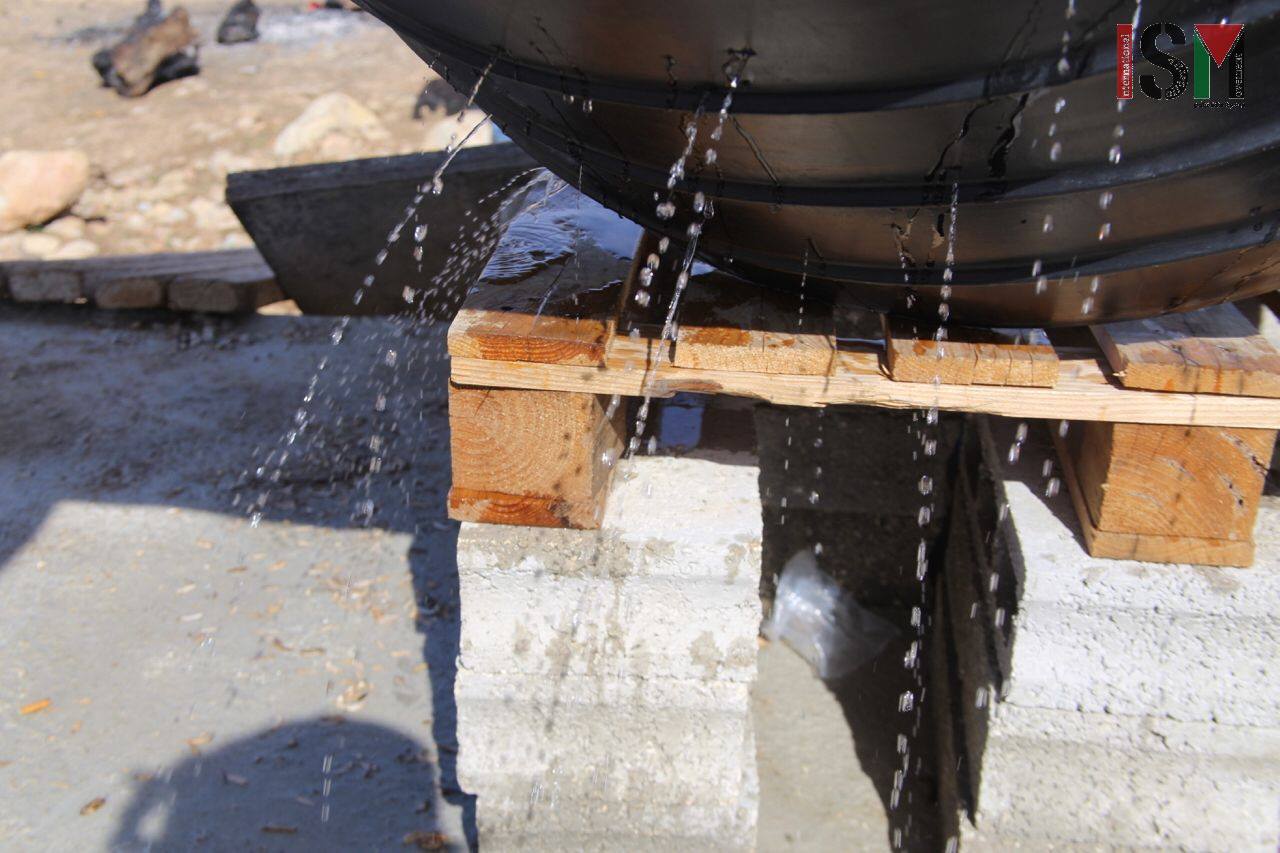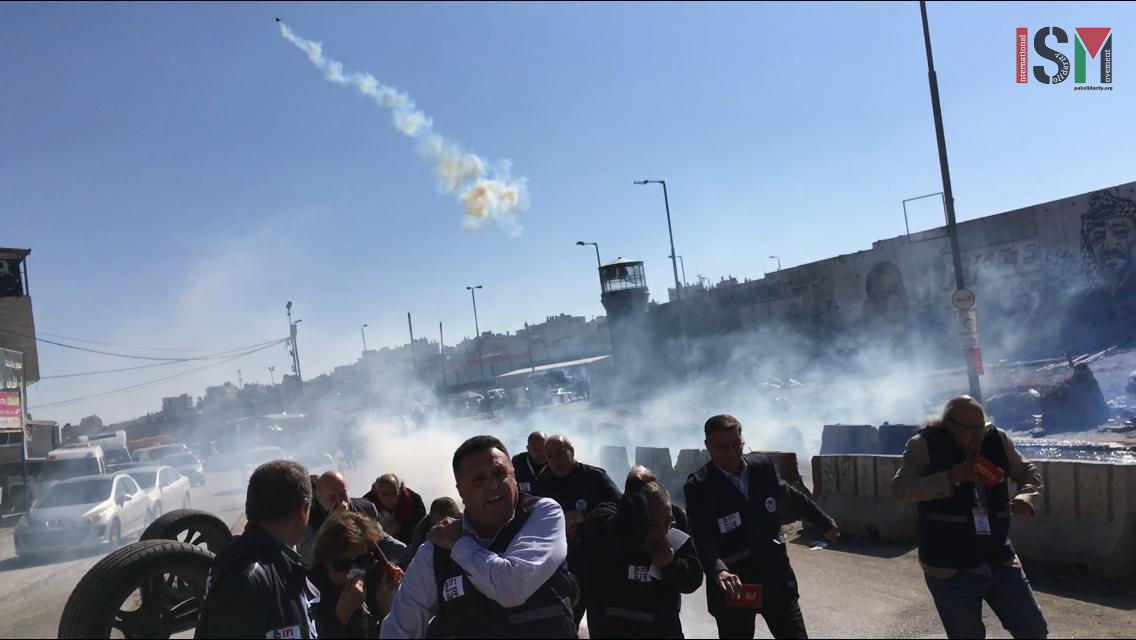Category: Ramallah
-

Palestinians and Internationals attacked with Gunfire in Mazra’a al-Qibliya
November 19, 2018 | International Solidarity Movement, Ramallah team | Ramallah, occupied Palestine Investigating a reported settler attack on a home outside of Mazra’a al-Qibliya, the residents, along with ourselves, were attacked by a settler on horseback on the 18th November. The settler began by intruding on the property and brandishing a handgun. The residents…
-

International and Palestinian Journalists Tear Gassed
November 17, 2018 | International Solidarity Movement, Ramallah team | Ramallah, occupied Palestine The International Federation of Journalists (IFJ) decided to hold its annual meeting in Palestine this year, where they demonstrated at the infamous Qalandia checkpoint on Saturday. The dozens of journalists, holding only international press cards, were immediately met with canisters of tear…
-
Protestors in Ramallah honor Razan Al Najjer, young medic executed by Israeli forces in Gaza
3rd June, 2018 | International Solidarity Movement, Ramallah team | Ramallah, occupied Palestine Yesterday at midday, hundreds of protestors marched through the streets of Ramallah to mourn the execution of Razan Al Najjer, the 21-year-old medic who was executed by Israeli forces in Gaza on Friday. Members of the Palestinian Medical Relief Society from across…
